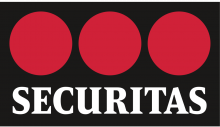Cloud & data | Updated: November 17, 2025
Cloud, data sovereignty, and AI. Three buzzwords that are no longer just trends. They are realities shaping the way European businesses manage and protect their data.
At Hosted Power, we see it every day: companies want the speed and scalability of the cloud, but they are increasingly worried about where their data lives and who controls it. With new EU regulations coming into force, these concerns are no longer optional. They are business-critical. In this article, you learn about hosting, compliance and data sovereignty in the EU.
Table of contents
- Why data sovereignty matters now
- The EU’s regulatory landscape
- What this means for hosting
- Key takeaways for decision-makers
Why data sovereignty matters now
Data sovereignty means that data is subject to the laws and governance structures of the country where it is collected or processed. For European businesses, that increasingly means ensuring data is stored and processed within the EU, under EU laws.
This shift is driven by several trends:
- Exploding cloud adoption: Nearly every workload now runs in the cloud, from e-commerce platforms to AI applications.
- Sensitive business data: Customer data, payment details, and intellectual property are valuable targets.
- Tighter EU rules: GDPR, the Data Act, and NIS2 are redefining how companies must handle data.
Failing to comply is expensive. GDPR fines alone have surpassed €4 billion since 2018. But more importantly, trust is on the line. Customers expect their data to be safe, sovereign, and always available. And regulations are only tightening.
The EU’s regulatory landscape: what you need to watch
Several new and existing laws are converging:
- GDPR → The foundation of data protection in the EU.
- EU Data Act (2025) → Defines who can access and share data, with strong focus on business and IoT data.
- NIS2 Directive (2024–2025) → Requires hosting providers and critical sectors to meet strict cybersecurity and incident reporting standards.
- AI Act (2025–) → Sets compliance obligations for high-risk AI systems.
- Schrems II → Limits data transfers to the US, pushing companies toward EU-based hosting.
The challenge is clear: regulation is moving fast, but technology is moving faster. So what does that mean in practice for your hosting?
What this means for hosting
Choosing the right hosting partner is no longer just about performance. It is about compliance, sovereignty, and trust.
At Hosted Power, our TurboStack platform is designed with these realities in mind:
- EU based infrastructure: Your business data stays under European jurisdiction.
- Compliance ready hosting: Aligned with GDPR, NIS2, and the upcoming Data Act.
- Confidential computing & encryption: Security at rest, in transit, and in use.
- Hybrid & multi-cloud support: Run the right workload in the right environment.
This is where hosting becomes more than infrastructure. The hosting provider becomes a strategic partner in compliance and growth.
Key takeaways for decision-makers
- Regulations are not future tense. The EU Data Act applies from 2025, NIS2 is rolling out now, and GDPR fines keep rising.
- Not all data requires sovereignty, but identifying what does is critical.
- Hybrid and multi-cloud are the new normal, but sovereignty must be built-in.
- Hosting is no longer a technical choice. It is a strategic compliance decision.
👉 If you want to ensure your infrastructure is both future-proof and regulation-proof, Hosted Power can help.
Get in touch with our team to discuss how we can align your hosting with the latest EU data sovereignty requirements.


















